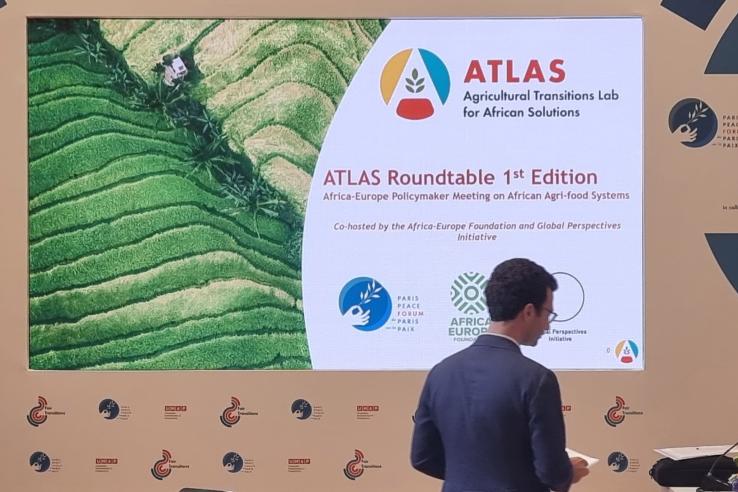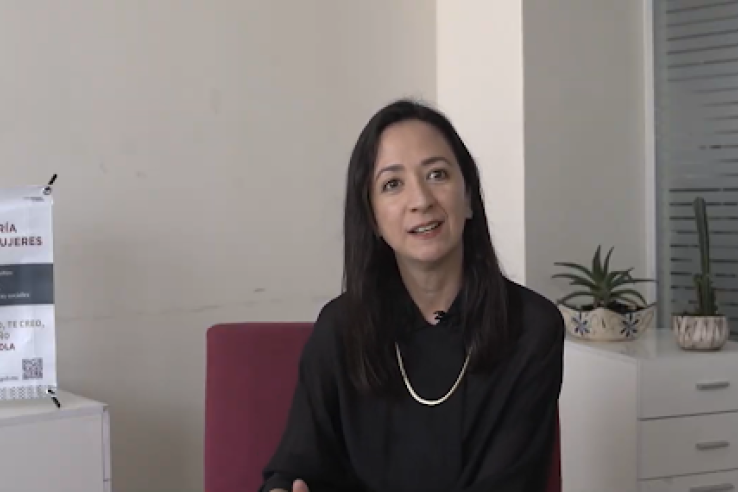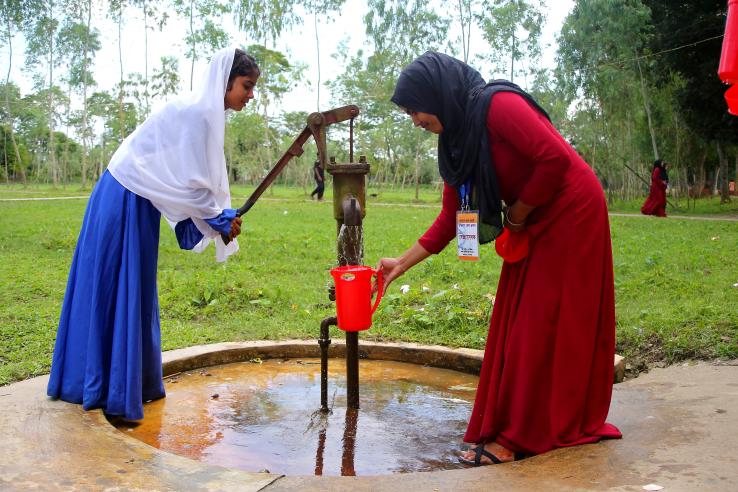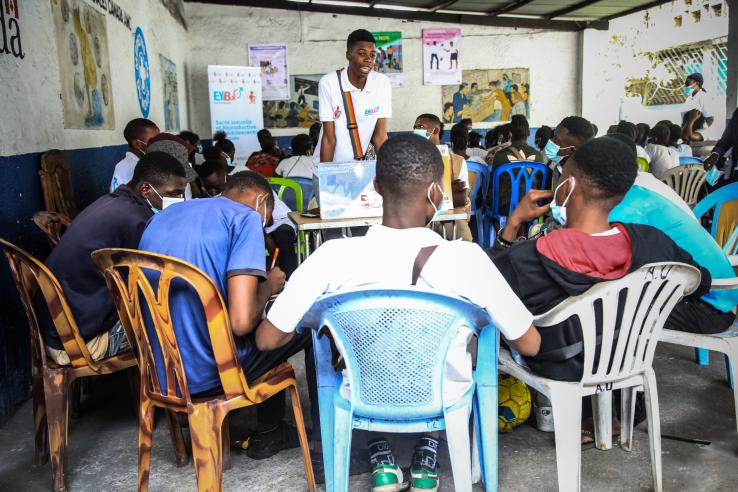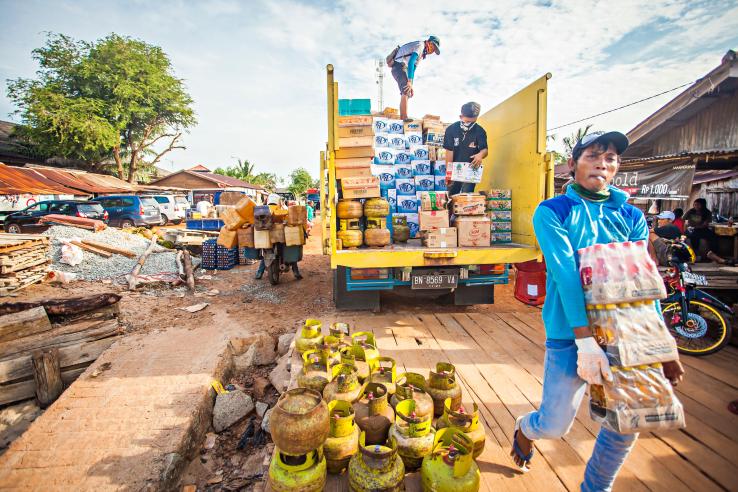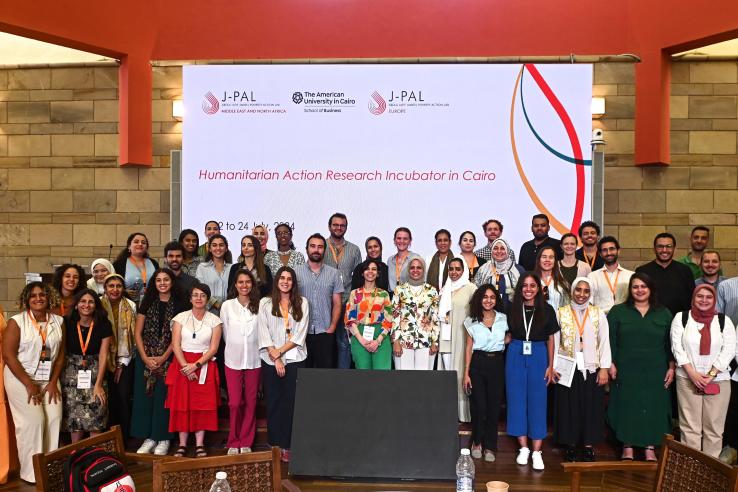Displaying 3076 - 3090 of 8337
Blog
The Paris Peace Forum (PPF), a French nonprofit organization, launched a policy initiative in 2023 called "Mobilizing for Strong and Sustainable Food and Nutrition Systems in Africa" to promote sustainable agricultural transformation on the African continent through South-North dialogue on policy...
Blog
Generating evidence to inform policies for gender equality in Latin America and the Caribbean (LAC) is a crucial priority for J-PAL LAC, and government partnerships are critical to achieving this goal. Since 2020, J-PAL LAC has been partnering with the Mexico City Women's Secretariat (SEMUJERES)...
Update
J-PAL Updates
J-PAL North America's June newsletter features an ongoing research partnership to address wildfire risk and new research results on the impact of emergency rental assistance.
Policy insight
Low-cost, simple interventions like dilute chlorine solution or water filtration can reduce households’ use of unsafe or contaminated water—a key source of morbidity and mortality, especially among children. Full subsidies can expand access to and usage of water treatment options among households...
Event
The Egypt Impact Lab, J-PAL MENA at AUC, and Community Jameel are officially launching the Hub for Advanced Policy Innovation for the Environment (HAPIE), which is J-PAL MENA's regional Air and Water Lab.
Update
J-PAL Updates
In the November 2024 newsletter celebrate the Nobel Prize in Economics, learn about training civil servants on impact evaluations in Côte d'Ivoire, and read how credible skills signals can improve employment and earnings for job seekers.
Blog
Economists have long used qualitative methods to inform the design and help interpret the results of RCTs. To support the further integration of qualitative methods into randomized evaluations and provide more structured guidance, J-PAL has developed new research resources and training materials for...
Blog
In our new postdoc alumni spotlight series, we spoke with Jules Gazeaud, J-PAL '24, about his experience as a postdoctoral researcher at J-PAL MENA.
Blog
The need for more financing is one of the biggest barriers to small- and medium-sized enterprises’ growth. Microcredit programs can help entrepreneurs overcome financial constraints, providing access to resources to boost the growth of small businesses and alleviate poverty by increasing income...
Policy insight
Improved access to markets has often helped small firms in low- and middle-income countries grow by boosting firm revenues and profits. These interventions have been effective because they have led to new sales, helped firms connect with new types of buyers, and increased information sharing and...
Update
J-PAL Updates
J-PAL North America's September newsletter features our work with the Learning Engineering Virtual Institute, new research results on computer-assisted learning, and a new review paper on interventions to improve early childhood learning outcomes.
Event
Learn more about MIT's master's program in Data, Economics, and Design of Policy (DEDP) in preparation for the upcoming admissions cycle.
Blog
This blog post provides an overview of the evolving policy narratives in humanitarian work, emphasizing J-PAL’s initiatives to address evidence gaps. It also highlights the establishment of a dedicated portfolio at J-PAL MENA, aimed at supporting localized actions and ensuring that humanitarian...
Person
Event
O próximo período do Programa MITx MicroMasters® em Dados, Economia e Elaboração de Políticas está se aproximando rapidamente! Junte-se à equipe do curso DEDP em um webinário para saber mais sobre o programa e ter suas perguntas respondidas ao vivo. Uma gravação do evento será enviada a todos os...
